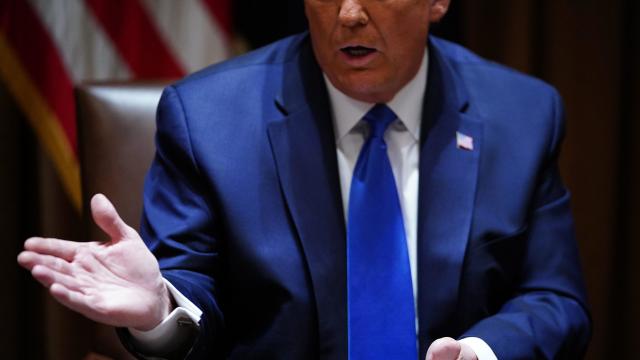Facebook will temporarily disable all ads focused on political and social issues after polls close on Election Day as part of an effort to “reduce opportunities for confusion or abuse,” it said Wednesday.
Guy Rosen, Facebook’s vice president of product management, said the company is preparing for what could be one of the most gruelling election night counts since at least 2000. “We’ve known for a long time that the 2020 election in the US would be unlike any other. We’ve been preparing for this election with a unique set of products and policies,” he said.
“Getting the final election results this year may take longer than previous elections due to the pandemic and more people voting by mail,” Rosen added. “So we’re preparing a range of policies and products to keep people informed and prevent the spread of misinformation.”
Advertisers will be notified, Facebook said, when it decides to lift the restrictions.
Covid-19 has led to a massive surge in voting by mail. Americans have already cast more than 5.6 million ballots, according to the U.S. Elections Project; that’s up from under just a half-million at this point in 2016.
The unprecedented volume of mail-in ballots means overtime counts could play an outsized role in the tally. And while many politicos are working to discourage voters from fixating on so-called “doomsday scenarios,” others suggest they should be steeling themselves mentally for an election night turned “election month.”
Facebook has faced a firestorm of criticism over its handling of the election so far; in particular, the decision to allow ads that deliberately mislead voters. In June, the company said it would, like its competitor Twitter, begin labelling posts by politicians who violate its rules. So far, Facebook has placed warnings on about 150 million pieces of content, it says, and directed approximately 39 million users to its Voting Information Centre, a page that offered vetted news and information.
Facebook also said it has removed roughly 6.5 billion fake accounts. The biggest provocateurs, however, are unlikely to hail from Beijing or Moscow, but Washington D.C., and it’s unclear what impact, if any, banning ads after the election may have. Trump’s personal page, for instance, has garnered some 30 million followers and he can share his thoughts directly with these users without spending a dime.
“Since 2016, we’ve built an advanced system combining people and technology to review the billions of pieces of content that are posted to our platform every day,” Rosen said. “State-of-the-art AI systems flag content that may violate our policies, users report content to us they believe is questionable and our own teams review content.”
Added Rosen: “We’ve also been building a parallel viral content review system to flag posts that may be going viral – no matter what type of content it is – as an additional safety net. This helps us catch content that our traditional systems may not pick up.”
Facebook’s response to misleading Trump posts has been feeble at best so far.
Last month, Trump told supporters who’d already voted by mail to show up at polling locations and try to vote again if they are unable to confirm their mail-in ballot was counted. The problem is that in most states, officials won’t begin counting mail-in ballots until after the polls are closed. (This is usually a matter of law.) In 28 states, voting twice is a felony, meaning that following Trump’s advice to the letter could lead some voters to break the law.
Facebook did not take down the post, but instead added a label that reads: “Voting by mail has a long history of trustworthiness in the US and the same is predicted this year.”
Trump has repeatedly claimed that mail-in voter fraud is rampant, which is a lie. There is no evidence to suggest widespread voter fraud of any kind has occurred in modern U.S. politics. All forms of voter fraud are rare, as FBI Director Chris Wray told the Senate last month. “We have not seen, historically, any kind of coordinated national voter fraud effort in a major election, whether it’s by mail or otherwise,” he said.
A recent Washington Post analysis of data collected from three vote-by-mail states — Colorado, Oregon, and Washington — found that only 0.0025 per cent of ballots had been flagged for investigation.
Trump has also repeatedly told supporters that the “only way” he will lose “is if this election is rigged.” If election night ends with a cliffhanger and Trump begins baselessly accusing Democrats of trying to steal the election — which he has already preemptively done — there is no predicting precisely what the ramifications may be.
For its part, Facebook says it will not only label any premature declarations of victory by candidates but include “specific information…that the counting is still in progress and no winner has been determined.” But in whom are voters more likely to place faith is the question: Facebook or the candidate that they’re so desperate to see triumphant?
